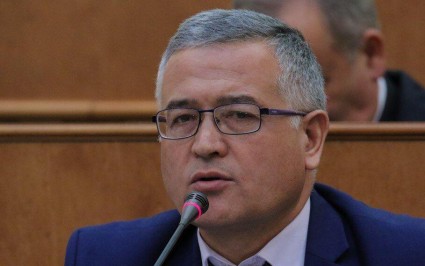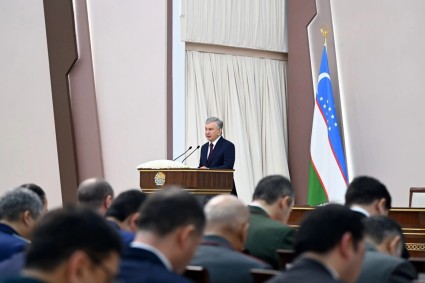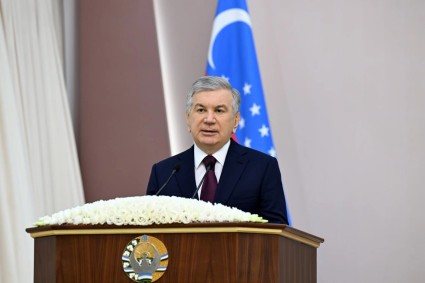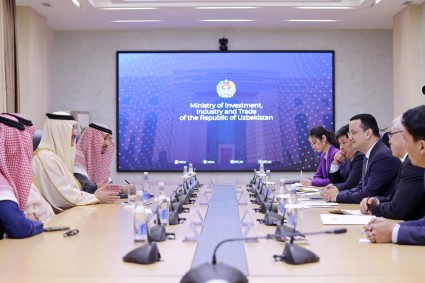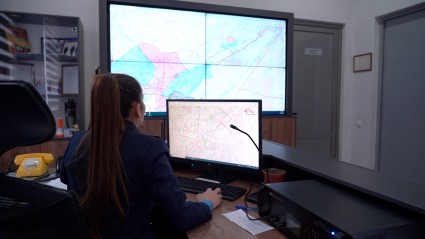Uzbekistan remains committed to its reforms program despite new global challenges and uncertainties in the world economy, the First Deputy Minister of Economy and Finance Ilkhom Norkulov said at the opening of the 58th annual meeting of the Asian Development Bank on May 5 in Milan.
According to him, the reforms program launched in 2017 allowed the country to cope with serious external shocks - the COVID-19 pandemic, geopolitical instability, trade tensions in the global economy and fluctuations in external markets.
“Thanks to strong leadership and political will to carry out difficult but vital macroeconomic reforms, our GDP has doubled since 2018, reaching $115 billion in 2024, and GDP per capita has exceeded $3,000,” he noted.
According to him, these achievements were made possible by close cooperation with international partners, especially with the Asian Development Bank, which has provided Uzbekistan with more than $5.4 billion in priority development areas over the past five years.
“We have also received significant technical assistance from ADB in the areas of supporting SMEs, environmental transition, and institutional capacity building in the preparation and implementation of reform programs,” he said.
Guided by the ADB Partnership Strategy for 2024-2028, Uzbekistan continues to work closely with the bank and other stakeholders within the framework of a common vision - transforming Uzbekistan into a more sustainable, inclusive, and “green” economy.
According to Ilkhom Norkulov, Uzbekistan "remains optimistic about the economic future": the national goal has been updated to reach $5,000 in GDP per capita by 2030 (with a GDP of $200 billion), despite the ongoing global uncertainty.
"We understand that this is an ambitious target, but we are confident in our own potential and ability to achieve it. For 2025-2026, we forecast economic growth at a level of at least 6%," he said.
The First Deputy Minister of Economy and Finance emphasized that in the context of new global instability and uncertainties in the world economy, Uzbekistan remains committed to the course of reforms. One of the indicators of success is the trade with Central Asian countries which grew by 2.5 times from 2017 to 2024, from $3.3 to $8.1 billion.
"This demonstrates the growing trust and predictability of the region's economy. We intend to maintain this momentum and expand cooperation in Central Asia and the South Caucasus," Ilkhom Norkulov emphasized.
The First Deputy Minister outlined three areas in which Uzbekistan expects to receive increased support from ADB.
In particular, this concerns the development of regional connectivity, joint efforts to combat climate change, and optimization of water resources management. ADB can support these efforts through capacity building programs and regional projects.
Simplification of project implementation procedures and the use of national procurement systems are also proposed.
"Following a positive assessment by the World Bank, public procurement terms in Uzbekistan have been reduced from 4-6 months to 10 days. Given the growing institutional capacity, we believe that the time has come for ADB to apply a similar approach to accelerate project implementation," Norkulov said.
He welcomed the institutional transformation of the ADB and called for further decentralization of expertise to regional hubs, especially to more quickly respond to requests for technical assistance, climate initiatives, water management, and transport connectivity.
In conclusion, Ilkhom Norkulov emphasized that Central Asia has demonstrated sustainable growth: the region's total foreign trade turnover reached almost $95 billion in 2024.
He also announced that the 59th ADB Annual Meeting in 2026 will be hosted by Samarkand.







